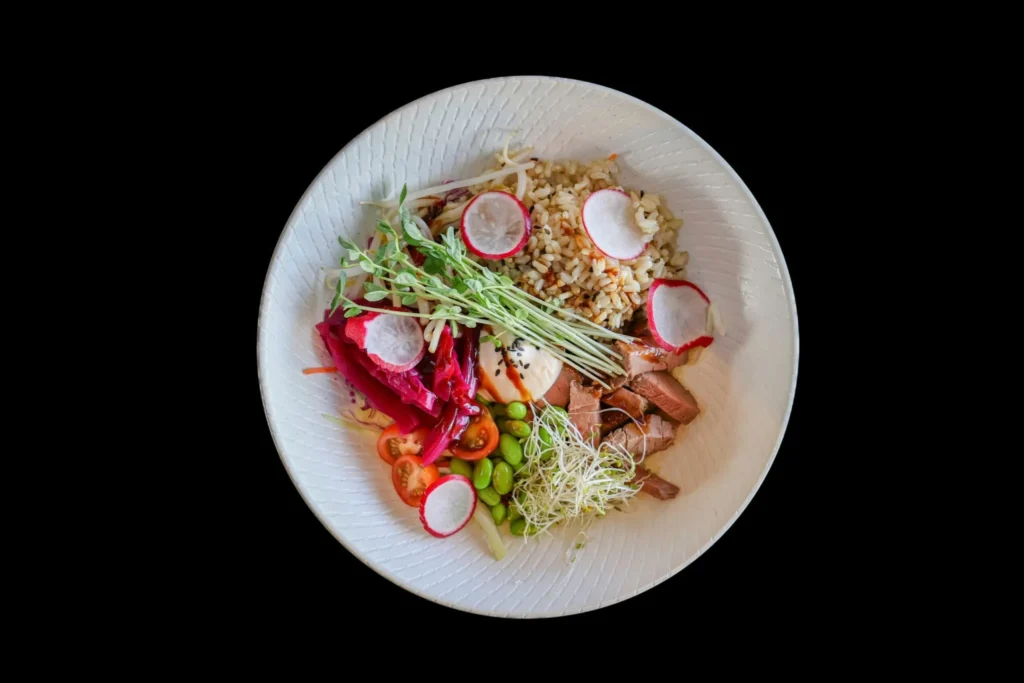Are you curious about the dietary habits of Okinawans and whether they follow a calorie-restricted diet? You might have heard that the residents of Okinawa, Japan, are renowned for their remarkable longevity and lower rates of chronic diseases. But what role does their diet play in this?
Discover Okinawan Diet Secrets
Understanding the Okinawan Diet
The Okinawan diet is often celebrated for its unique characteristics that contribute to the health and longevity of its people. It’s not just about the quantity of food consumed but also the types of foods that are staples in their daily meals.
Key Components of the Okinawan Diet
In Okinawa, the diet is rich in vegetables, particularly sweet potatoes, which serve as a fundamental carbohydrate source. Traditional meals typically consist of:
- Vegetables: A variety of vibrant, seasonal veggies, particularly green leafy ones.
- Whole Grains: While rice is a staple, sweet potato is even more prevalent.
- Soy-based Products: Tofu and other soy products play a significant role.
- Fish: Consumed regularly, though not excessively.
- Herbs and Spices: Added for flavor and health benefits, including turmeric and ginger.
Okinawans consume a relatively low amount of meat and dairy, steering clear of processed foods. The emphasis is clearest on maintaining a balanced and nutrient-rich intake, which is essential for overall health.
Caloric Intake and Longevity
There is a belief that calorie restriction can enhance longevity. Research on Okinawans has consistently shown that they consume fewer calories than people in Western countries. The average daily caloric intake is generally less than 1,800 calories.
The Concept of Hara Hachi Bu
A fascinating aspect of the Okinawan lifestyle is the concept of “Hara Hachi Bu,” which translates to “eat until you are 80% full.” This practice encourages mindful eating, preventing overconsumption. The focus is as much on portion control as on the types of food consumed.
Benefits of Caloric Restriction
Studies suggest that calorie restriction can lead to improved health markers and longevity. Some of the key benefits associated with a lower caloric intake include:
- Reduced Risk of Chronic Diseases: Lower caloric intake has been associated with lower rates of cardiovascular diseases, diabetes, and certain cancers.
- Enhanced Metabolic Health: Consuming fewer calories helps maintain healthy blood sugar levels and cholesterol.
- Improved Cellular Repair Processes: Less food intake promotes autophagy, the body’s way of cleaning out damaged cells.
Learn About Calorie Restriction In Okinawa
Nutritional Composition of the Okinawan Diet
What specifically fuels the longevity of Okinawans? A closer look at the nutritional composition of their diet reveals some insights.
Macros and Micros
The Okinawan diet is abundant in essential nutrients, contributing to the overall health and wellbeing of its population. Here’s a breakdown of the key macronutrients and micronutrients:
| Nutrient | Okinawan Diet (Approximate) | Standard Western Diet |
|---|---|---|
| Carbohydrates | 70% | 47% |
| Proteins | 15% | 15-20% |
| Fats | 15% | 35-40% |
| Fiber | High | Low |
| Antioxidants | High | Moderate |
Rich in Antioxidants
Another significant aspect of the Okinawan diet is its high antioxidant content, primarily from fruits, vegetables, and herbs. Antioxidants are critical in fighting oxidative stress, which has been linked to aging and chronic diseases.
Cultural Context of Eating in Okinawa
The dietary habits of Okinawans are deeply rooted in cultural traditions that emphasize not merely the act of eating but the social and communal context surrounding food.
The Significance of Family Meals
In Okinawa, meals are often shared among family members, reinforcing bonds and encouraging a slower, more mindful approach to eating. This communal environment plays a vital role in promoting healthy eating behaviors.
Spiritual and Emotional Connection to Food
Food in Okinawa is not just about nutrition. It carries spiritual and emotional significance, often tied to celebrations and community gatherings. This connection fosters a wholesome approach to eating that respects and honors the relationship with food.
Exercise and Lifestyle Factors
While diet is crucial, it’s essential to recognize that a well-rounded approach to health includes physical activity and lifestyle choices.
Physical Activity
Okinawans typically engage in regular physical activity, which can significantly contribute to their longevity. Common forms of exercise include:
- Walking: Many people incorporate walking into their daily routines.
- Traditional Ryukyu Martial Arts: Practiced by many older residents, these require both mental and physical engagement.
- Gardening: A beloved pastime that keeps them active while connecting with nature.
Stress Management and Social Connections
A strong sense of community and familial relationships forms the backbone of the Okinawan way of life. Good social ties are known to contribute positively to a person’s health and stress levels, which can indirectly affect dietary choices and overall longevity.
Comparing Okinawan Diets to Other Diets
When considering how Okinawans compare to other dietary patterns globally, several distinct differences emerge.
Mediterranean vs. Okinawan Diet
Both the Okinawan and Mediterranean diets emphasize plant-based foods, healthy fats, and lean proteins, but they differ in several ways:
| Aspect | Okinawan Diet | Mediterranean Diet |
|---|---|---|
| Primary Carb Source | Sweet Potatoes | Whole Grains |
| Fat Source | Fish, some vegetable oils | Olive Oil, Fish |
| Meat Consumption | Minimal | Moderate |
Both diets encourage moderate calorie intake and prioritize whole foods, but the Okinawan diet is more plant-centric with a lower emphasis on fats.
Plant-Based Diets
Okinawa’s approach has similarities with various plant-based diets that focus primarily on fruits, vegetables, and whole grains. The primary distinctions often lie in the types of carbohydrates consumed.
The Role of Caloric Restriction Research
Scientific interest in the Okinawan diet and its impacts on health has led to numerous studies focusing on caloric restriction. Researchers are keen to decipher how restricted caloric intake enhances lifespan and combats diseases.
Animal Studies
Many studies have indicated that calorie restriction in animals leads to an extended lifespan and better health markers. However, translating these findings to human subjects remains an ongoing area of research.
Human Studies in Okinawa
Human studies conducted in Okinawa provide compelling data. Researchers found that the longevity and health of Okinawans might be linked more closely to their dietary habits and lifestyle choices than just genetics.
Practical Implications for Dietary Choices
What can you learn from the eating habits of Okinawans? Here are some practical takeaways that can inspire healthier dietary choices.
Mindful Eating Principles
Incorporating principles of mindful eating can benefit your dietary habits:
- Listen to Your Body: Only eat until you’re about 80% full.
- Savor Your Food: Take time to enjoy each bite and appreciate the flavors.
- Focus on Whole Foods: Aim to fill your plate with plants, whole grains, and lean proteins.
Emphasis on Variety and Color
Incorporating a diverse range of colorful fruits and vegetables into your meals can mimic the Okinawan approach, fostering a nutrient-dense diet.
Healthy Interactions with Food
By fostering a positive relationship with food, you’re likely to adopt healthier eating patterns that promote overall wellness rather than relegating food simply to calories consumed.
Conclusion: What Can You Take Away?
Understanding the Okinawan diet and lifestyle offers valuable insights that extend beyond mere numbers on a plate. The principles of balance, mindfulness, and community interweave with their dietary choices, creating a holistic approach to health and longevity.
While you don’t necessarily need to adopt a strict calorie-restricted diet, embracing the elements that define the Okinawan way of life may well lead you toward a healthier, more fulfilling existence. Whether it’s adopting the practice of Hara Hachi Bu or simply being more mindful of what you eat, every little change can contribute to your overall wellbeing.
Take a moment to consider how you can incorporate these principles into your daily life and cultivate a healthier, more vibrant lifestyle. After all, it’s not just about how long you live; it’s about the quality of those years!


